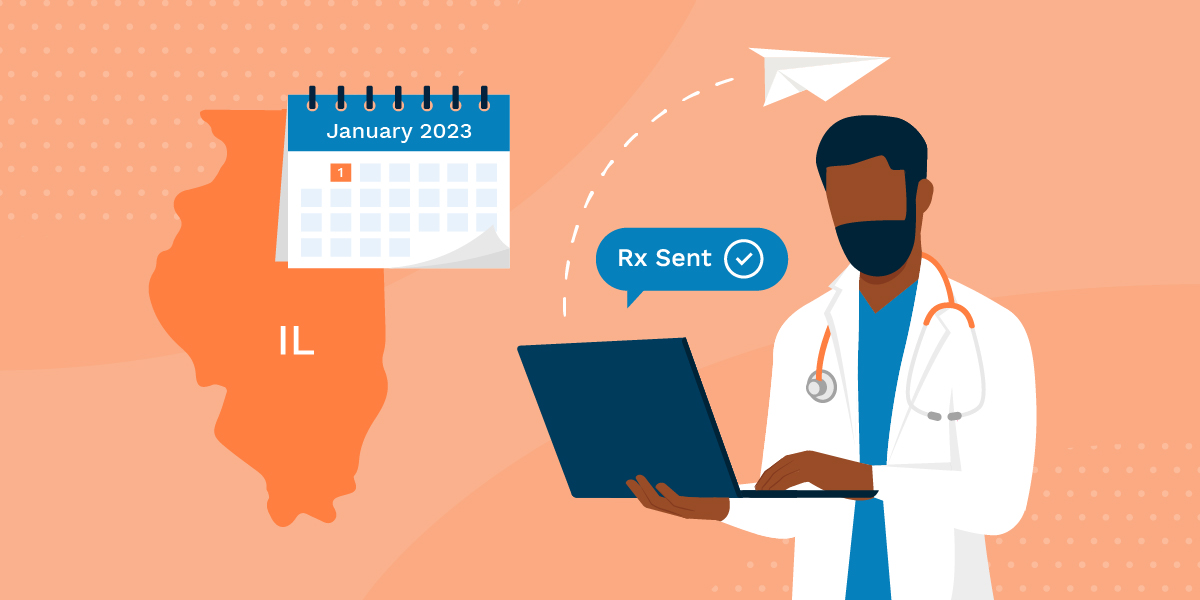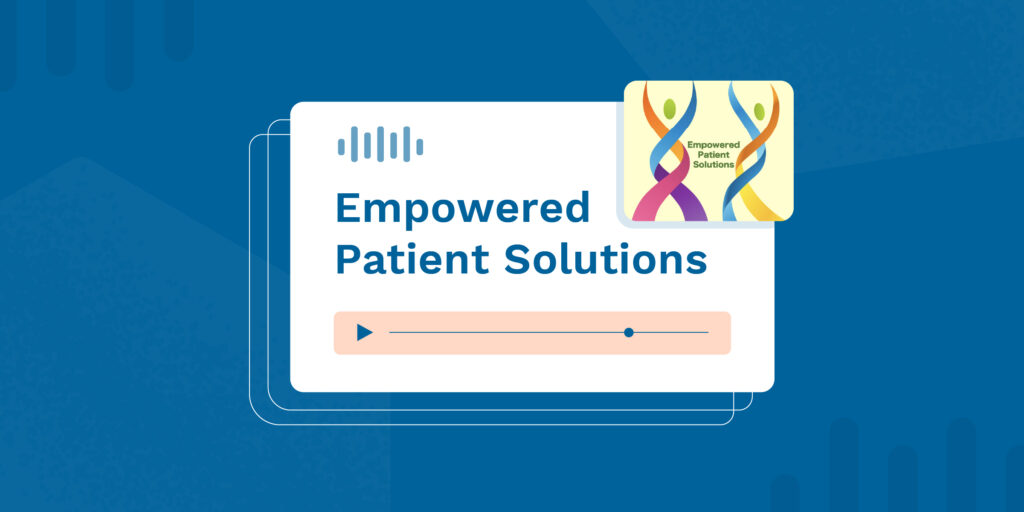Illinois is consistently ranked as one of the best U.S. states for healthcare due to its health outcomes, access, cost, and quality. Given that the greater Chicago area is also among the top 10 metros for healthcare in the United States, and there are an estimated 25,000 physicians in the state, this ranking should come as no surprise. What may be surprising to Illinois prescribers is how quickly the state’s Electronic Prescribing for Controlled Substances (EPCS) deadline is approaching.
The Illinois ECPS mandate is set to take effect for Schedule II-V substances on January 1, 2023, and physicians state-wide will need to comply. Find out what prescribers should know about the legislation, exemptions, penalties and related Medicare Part D requirements at the federal level.
What are the Requirements Under the Illinois Controlled Substances Act for EPCS and PMPs?
For prescribers in the state of Illinois, there are two state-level requirements to be aware of in 2023 regarding controlled substances. The first is Illinois’s Prescription Monitoring Program (PMP) requirements, which have been in effect since January 1, 2018. Controlled Substance (CS) licensed prescribers are required to register with Illinois’s PDMP, PMPnow, regardless of whether or not they use the service. Non-registered prescribers may be fined $100 per day by the Department of Human Services’ Division (IDHS) of Substance Use Prevention and Recovery (SUPR) for willful failure to report controlled substance dispensing to the PDMP.
Next, we have the Illinois Controlled Substances Act. Starting on January 1st, 2023, the legislation will require prescribers to transmit Schedule II-V controlled substance prescriptions electronically and that pharmacies have the capability to receive those prescriptions electronically. The legislation is strict and applies to all prescriptions for dangerous controlled substances classified as Schedule II, III, IV, and V.
The only exception to these requirements is for prescribers who certify to the Illinois Department of Financial and Professional Regulation (IDFPR) that they will not issue more than 25 prescriptions during a 12-month period. The 25-prescription limit applies to both prescriptions prescribed in oral and written form.
As of November 2022, the Illinois Department of Financial and Professional Regulation (IDPFR) has not yet adopted ”rules for the administration” of the mandate, nor outlined specific penalties, fees, or fines for noncompliance. Expect violations of The Illinois Controlled Substances Act to face disciplinary actions in the future.
Despite the impending deadline, many prescribers do not yet have EPCS-enabled technology. As of November 2022, just 59% of all Illinois prescribers are currently enabled for EPCS, according to the Healthcare Information Exchange (HIE) network Surescripts. This figure pales in comparison to neighboring states Indiana, where 86.7% of prescribers are prepared to meet requirements, and Iowa, where the percentage comes in at 81.6%.
How is Illinois Affected by Compliance Enforcement of EPCS for Medicare Part D at the Federal Level?
At the federal level, compliance enforcement of EPCS for Medicare Part D and Medicare Advantage prescription drug plans will also begin on January 1st, 2023. The requirements were originally outlined in the Every Prescription Conveyed Securely Act in 2018, but penalization has been delayed a number of times by the Centers for Medicare & Medicaid Services (CMS) until 2023. .
Practices found to be out of compliance in the 2023 measurement year will receive a notification of EPCS Program non-compliance by the Centers for Medicare & Medicaid Services (CMS). Additional penalties will be proposed in future years. Prescribers may only apply for a waiver if circumstances beyond their control prevent them from electronically prescribing controlled substances.
Prior to EPCS compliance, prescribers must also be willing and able to register with and receive an identification number from the Drug Enforcement Administration (DEA). To meet DEA Title 21, Chapter II requirements, providers must also use two-factor authentication tokens and follow the outlined procedures for passwords.
Why Does EPCS Matter for Prescribers? It’s Not Just About Compliance
There are several benefits of e-prescribing technology outside of complying with federal and state legislative requirements. One of the greatest benefits is increased safety for patients—when comparing providers who adopted electronic prescribing with those who still used paper prescriptions, a 2014 study found that e-prescribing reduced accidental medication errors by 85% over the course of 1 year usage.
Prescribers can easily track controlled substances prescribed to patients, see any potential drug interactions, and decrease the amount of time needed to prescribe and fill prescriptions. Because prescribers are digital, there is a much lower risk of miscommunication due to illegible handwriting or inaccurate instructions.
Likewise, electronic prescriptions can lead to improved patient outcomes. Paper prescriptions are difficult to track and easy for patients to lose. With ERX software, providers can see if a new patient has current prescriptions, their full history of past prescriptions and provide medication management counseling if needed while monitoring for signs of drug misuse.
Cloud-based e-prescribing software will decrease administrative burdens for practice staff—prescriptions are sent securely to pharmacies, reducing the need for callbacks due to Electronic Prior Authorization (EPA) and real-time prescription statuses. Providers can quickly review, authorize, and send standard refills and respond to emergency refill requests via mobile app.
RXNT has helped thousands of prescribers with easy, certified Electronic Prescribing software since 1999, and we know exactly what it takes to get you up and running quickly. Check out our Ultimate Guide to EPCS Mandates for details on how our experience translates to a simple implementation for your organization. Our E-Prescribing tool is DEA-certified for EPCS, provides direct access to PMP/PDMPs, and is backed by Surescripts.




